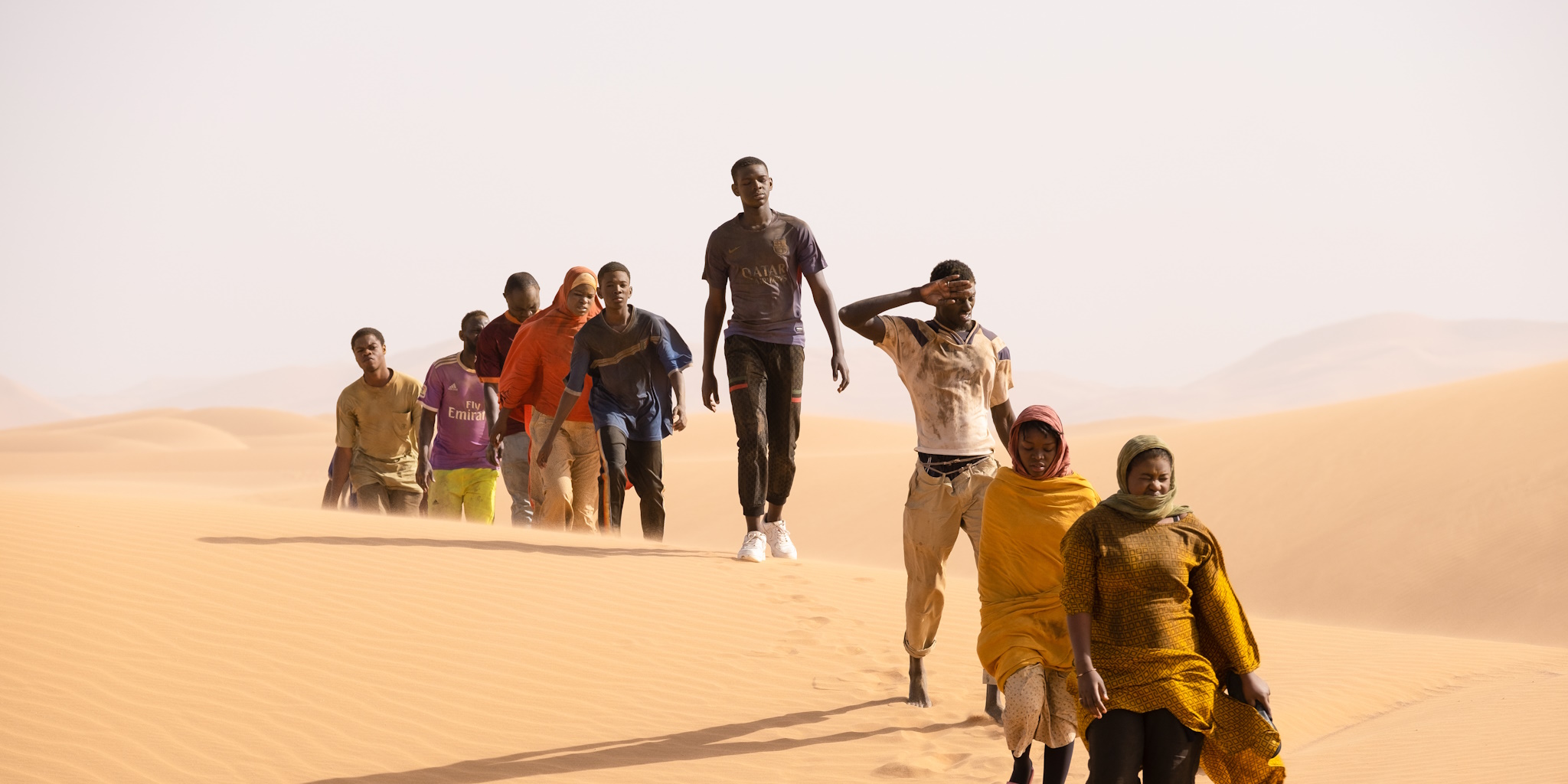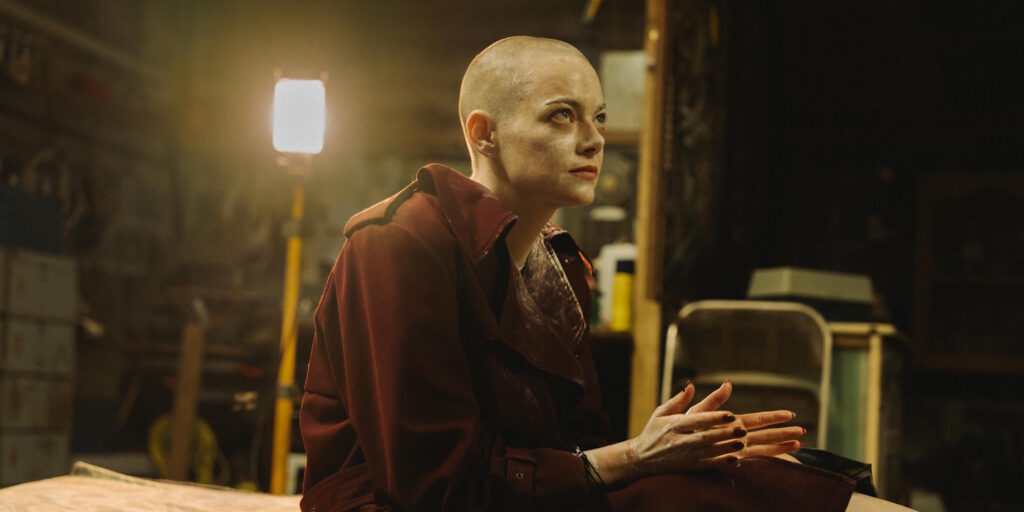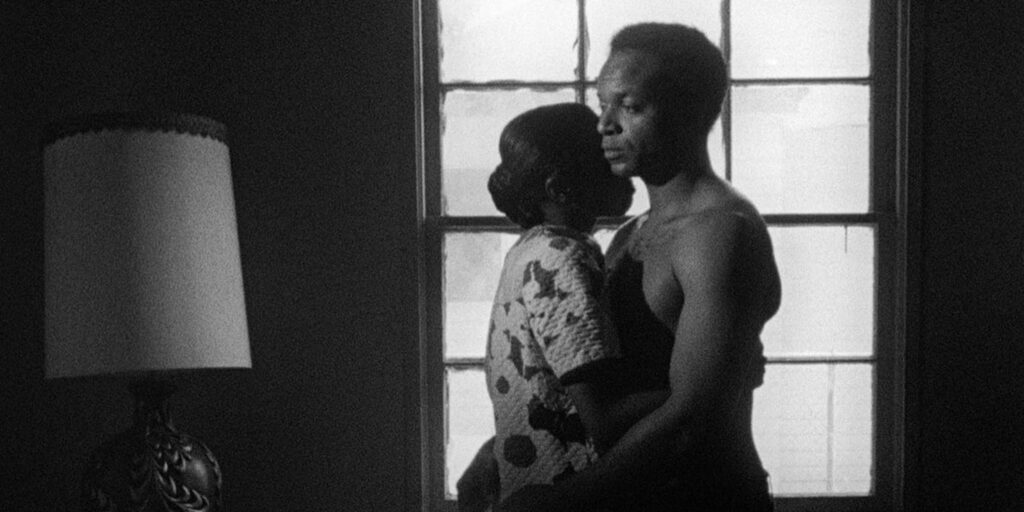At a glance, Io Capitano appears to be the sort of sober drama about a Very Important Issue that seems to periodically claw its way into the Best International Feature Oscar race. Lo and behold, director Matteo Garrone’s epic about a Senegalese migrant teenager’s hard-bitten odyssey finds itself alongside heavy hitters such as Perfect Days, The Teachers’ Lounge and The Zone of Interest on the 96th Academy Award nominations card.
Like many narrative features about the real-world struggles faced by people in the Global South, Io Capitano flirts with what might be termed “inspirational miserablism,” subjecting its virtuous but naïve protagonist to a gauntlet of agonies in the name of gritty realism. However, Garrone’s feature ultimately favors introspective psychological portraiture over cynical heart-tugging, using the tribulations of its hero as a way to explore the nature of compassion and responsibility in extremis. Although it would be fair to describe Io Capitano as a message film about the perils facing Europe-bound African migrants, it’s just as much a universal tale about the difficulty and necessity of maintaining one’s moral center in dreadful circumstances.
Young construction worker and aspiring musician Seydou – portrayed with raw soulfulness by newcomer Seydou Sarr, who won the Marcello Mastroianni Award in Venice last year – suffers from the jittery discontent that afflicts so many lean and hungry adolescent boys. He and his cousin Moussa (Moustapha Fall) are eager to make it big, and for months they’ve been squirreling away cash to fund their journey from Senegal to Italy. Seydou is driven by more than a base craving for fame and fortune: Hopelessly devoted to his widowed mother (Khady Sy) and young sisters, he dreams of stepping up as a provider and getting his family out of their tumbledown hovel in the slums of Dakkar. When he tentatively floats his travel plans to his mother, however, she reacts with such oppositional vehemence that he is forced to sheepishly walk back the proposal as a joke.
Seydou and Moussa eventually make their escape under cover of darkness, catching a bus bound for Mali, Niger, and points beyond. Things begin to go awry almost immediately, as the boys bleed cash into the hands of assorted predatory officials, traffickers, and shakedown artists. Desperate and a little callow, Seydou and Moussa are slow to realize the mounting, life-or-death seriousness of their situation. When a fellow Senegalese émigré advises them to conceal their remaining money in their rectums, the boys snicker in childish disbelief. It turns out to be a valuable tip, as the Libyan soldiers-slash-gangsters that patrol the desert are notorious for stripping every last franc from a traveler at gunpoint. (Unfortunately, said gangsters also arrive prepared with jugs of industrial-strength laxative.)
To summarize Io Capitano‘s plot is to catalog the succession of misfortunes that befall Seydou and Moussa, each crueler than the last. The boys are eventually separated, and Seydou is taken to a remote Libyan prison that seems to function less as a detention facility than as a regional economic hub for kidnapping and slavery. The factor that prevents the character’s plight from devolving into a cavalcade of misery for misery’s sake is Seydou’s outwardly fatuous decency in the face of such horrors. Sarr’s wide-eyed, trembling performance is crucial here, as it prevents Seydou from seeming a Christ-like suffering stalwart (or a Gump-like oblivious goober). Rather, he resembles what he is: a terrified child in horrific circumstances, holding fast to empathy and devotion as though they were the flotsam keeping him afloat on a storm-tossed sea.
Garrone emphasizes the centrality of Seydou’s guileless but sensitive point of view through dollops of magical realism. During the desert crossing, the boy is tormented by his decision to leave behind a fellow migrant who has collapsed from exhaustion. In his heat-addled waking dreams, he returns to the fallen woman and carries her to safety on the wind, as if she were a flapping pennant of silk. Later, while Seydou is huddled among dozens of filthy, starving men in a dank prison cell, a shaman appears and summons a winged spirit, who bears him back to Senegal to whisper reassurances to his distraught mother.
These winsome flourishes provide a bit of relief from all the woes that Seydou endures, but in the end, it is Sarr’s vulnerable portrayal that truly sells the boy as an engaging and credible character, despite his childish missteps. Time and again, it is his instinctive sympathy for the helpless – especially women and children – that distinguishes him from the venal, cruel, and craven people around him. Not incidentally, comparable sympathy from another soul often ends up saving his hide, as in the case of the older bricklayer who cleaves to the boy like a surrogate son while the two are imprisoned. The tension between ensuring one’s personal survival and assuming responsibility for others proves to be the film’s core dynamic, and it takes center stage in an arduous final act in which Seydou willingly accepts the burden of dozens of innocent lives onto his gangly shoulders.
Garrone is a director who has resisted pigeonholing, having dabbled in numerous genres, but his doom-laden crime epic Gomorrah (2008) and grueling character study Dogman (2018) remain his most important works. (The latter being a better Joker movie than Joker.) Fantasy flourishes aside, Io Capitano shares the grim, ruinous sensibility of those films, but the director’s latest feature also boasts an abundance of glossy, travel-magazine imagery, particularly when it comes to the wide shots of deserts, oceans, and cities. Unfortunately, this creates a touch of dissonance with the film’s bleak subject matter, although it could also be seen as establishing a mythic rhythm for Seydou’s journey, in which the beauteous alternates with the hideous.
Garrone and his collaborators were clearly compelled, at least in part, to open viewers’ eyes to the plight of African migrants – and specifically to the anti-immigrant devil’s deal between the Italian and Libyan governments that has led to widespread human-rights abuses. Io Capitano succeeds in this respect, but it works better as a character piece about a nascent adult struggling with impossible demands in unthinkable circumstances. The film’s ambiguous exhale of an ending underlines its overall disinterest in tidy political messaging. This is not really a fairy tale about reaching the Promised Land, but neither is it a grinding tragedy about a doomed journey. It’s about the importance of remaining upright in a world where there is no guarantee of justice, refuge, or salvation.
Io Capitano opens in select theaters on Friday, Mar. 8.




